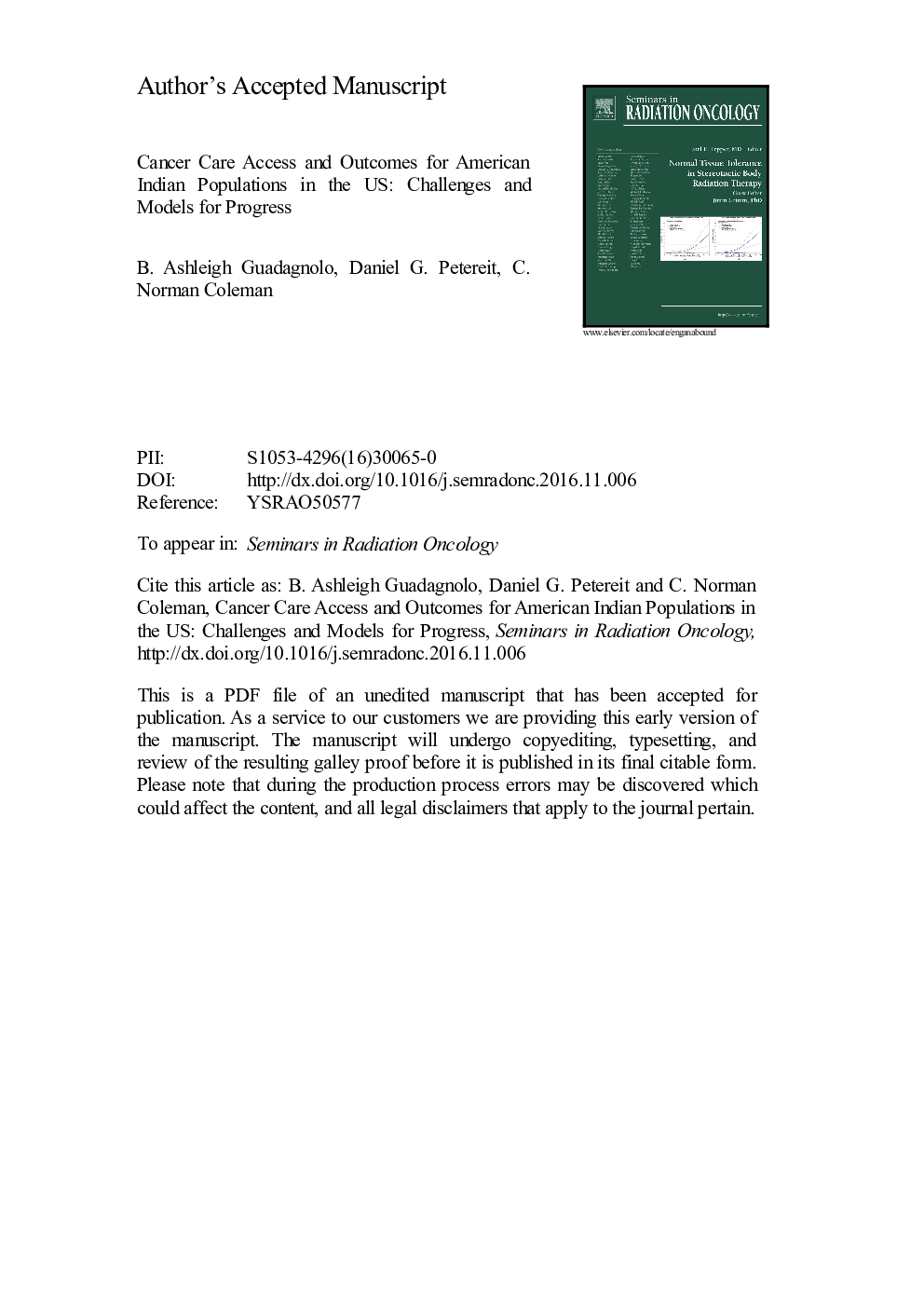| Article ID | Journal | Published Year | Pages | File Type |
|---|---|---|---|---|
| 5579458 | Seminars in Radiation Oncology | 2017 | 15 Pages |
Abstract
Low socioeconomic and health care access realities of being American Indian/Alaskan Native (AI/AN) in the United States combined with decades of data documenting poor cancer outcomes for this population provide a population nested within the United States that is analogous to the cancer care landscape of low- and middle-income countries internationally. We reviewed the medical literature with respect to cancer prevention, access to cancer treatment, and access to effective supportive and palliative care for AI/AN populations in the United States. Research confirms poorer cancer outcomes, suboptimal cancer screening, and high-risk cancer behaviors among AI/AN communities. AI/AN cancer patients are less likely to undergo recommended cancer surgeries, adjuvant chemotherapy, and radiation therapy than their White counterparts. Studies including both rural and urban survivors with AI cancer revealed barriers to receipt of optimal cancer symptom management and proportionally lower hospice use among AI/AN populations. Culturally tailored programs in targeted communities have been shown to mitigate the observed cancer-related health disparities among AI/AN communities. There is still much work to be done to improve cancer-related health outcomes in AI/AN communities, and the goals of the providers serving them corresponds with those propelling the growing interest in global oncology equity. Policy work and more funding are needed to continue to build upon the work that the Indian Health Service and established cancer-related health programs have begun in AI/AN communities.
Related Topics
Health Sciences
Medicine and Dentistry
Oncology
Authors
B. Ashleigh MD, MPH, Daniel G. MD, C. Norman MD,
